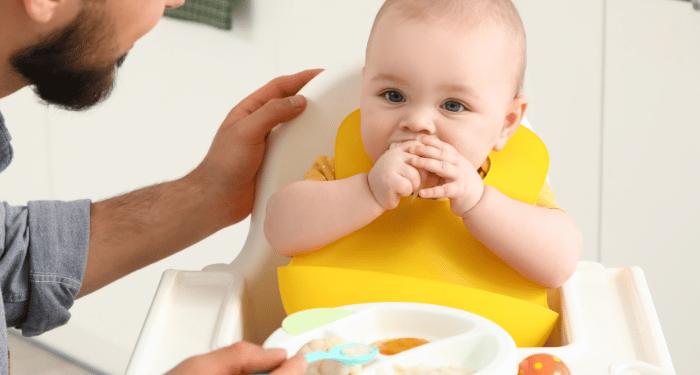
Picture this:
You’re sitting across from a 6-month-old who gives you the ultimate side-eye because you dared to offer them a spoonful of purée. A few months (and a lot of patience) later?
That same kid is crushing snacks like a champion, parents are crying tears of joy, and you’re feeling like the superhero you always secretly knew you were.
Welcome to infant feeding therapy – the wildly rewarding, slightly messy, and heart-bursting corner of the therapy world you didn’t even know you were made for.
What makes it so amazing?
1. You Actually Get to Know Your Clients (And It’s the Best Part)
Feeding therapy isn’t a “see you once, never again” situation.
You’re building relationships – real ones – with families who are trusting you with one of their most emotional journeys: helping their baby eat, thrive, and grow.
You meet the brand-new mom who’s scared to death.
The exhausted dad doing backflips to get the baby to latch.
The grandparents showing up with a full gallon of unsolicited advice.
And you?
You get to be the calm, confident guide who’s part therapist, part cheerleader, part magician.
And spoiler alert: they’ll remember you forever.
2. Critical Thinking Skills: ENGAGE.
Infant feeding therapy isn’t a “paint-by-numbers” type of therapy.
Every baby brings a beautiful little puzzle:
- Is it sensory?
- Is it motor?
- Is it anatomical?
- Is it all three, wrapped up in a burrito of adorable frustration?
You’ll use your clinical reasoning muscles daily- adjusting plans, troubleshooting unexpected curveballs, and tailoring care in a way that feels like real therapy (not just protocol-following).
Feeding therapy keeps you sharp.
(And let’s be honest, being able to say “I once figured out a baby’s feeding aversion from the way he blinked at a spoon” is a flex.)
3. The Tiny Wins Feel Like Olympic Gold
Sure, in other therapy domains you celebrate big milestones over time.
But in infant feeding?
You will literally want to throw a parade the first time a baby accepts a spoon, sucks from a bottle, or even tolerates a new texture without staging a full-blown rebellion.
It’s addicting in the best way possible.
And seeing the relief (and sometimes happy tears) on a parent’s face when their child finally eats?
There’s no paycheck in the world that can match that kind of joy.
4. You Become a Family’s Lifeline (In the Best Way)
When feeding is hard, it doesn’t just stress the baby – it rocks the entire family dynamic.
You’re not just helping with oral motor skills or sensory regulation.
You’re restoring mealtime joy.
You’re helping babies grow, parents relax, and family connections rebuild.
Therapists who specialize in infant feeding are often described as life-changers.
(And yes, you’ll 100% cry during at least one discharge session a year. It’s basically a rite of passage.)
5. It’s Never, Ever Boring
Feeding therapy is dynamic.
It’s not the same session on repeat.
One day you’re troubleshooting latch with a preemie; the next, you’re helping a 9-month-old explore purees with their whole face.
It’s flexible, creative, and honestly, way more fun than you probably imagined back when you were studying anatomy at 2am.
If you’ve been feeling the itch for something more –
- More connection,
- More critical thinking,
- More life-changing impact,
- More adorable baby giggles…
Infant feeding therapy is calling.
And trust me – once you answer, you’ll wonder how you ever lived without it.
Doors to Feed The Peds® open May 5–9. — don’t miss your chance to grow your skills and confidence in pediatric feeding therapy. Join us today here: https://www.feedthepeds.com/


